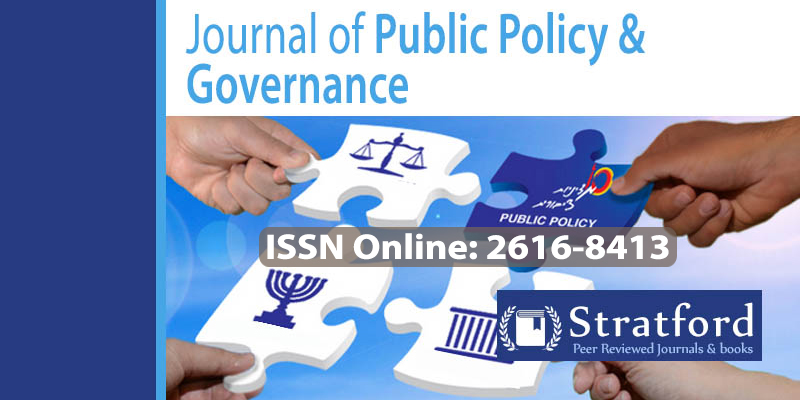Tax Reforms, Compliance, Education and Efficiency of Kenya Revenue Authority
DOI:
https://doi.org/10.53819/81018102t5371Abstract
The study examined the conceptual and theoretical frameworks related to tax reforms, compliance, education, and their effects on the efficiency of the Kenya Revenue Authority (KRA). The study was premised on the background of the revenue authority under which the government exerts considerable pressure on the authority to realize set revenue goals. The purpose was to analyze conceptually and theoretically the developed frameworks related to the comprehensive analysis of tax reforms, education, and KRA efficiency, and to identify potential gaps in the empirical literature. These included tax policy innovations, economic tax innovations, administrative innovations together with structural ones. The study adopted various theories aligned to the area being studied such as benefit theory of taxation, ability to pay theory, theory of optimal taxation as well as tax compliance theory. The efficiency of KRA in light of tax compliance and tax education was established as a moderator and mediator respectively. The study findings revealed that research on tax reforms and efficiency remains scarce and limited in terms of outcomes, with significant gaps existing in industry-level impacts, time horizons, and taxpayer behavioral responses to reforms. The analysis of changes in taxation systems and the concept of efficiency provided numerous research questions that require further investigation. The study concluded that filling these knowledge gaps will ultimately improve the development of reforms that generate pro-growth and stability tax systems that are fair for all in society. The study recommended conducting significant impact studies before introducing tax reforms, enhancing data collection and analysis methods, utilizing technology and digitization to improve tax administration structures, and building capacity among tax administration staff. Further research should concentrate on economic specializations or effects, long-term analysis, and changes in taxpayer behavior due to reforms. By conducting cross-country studies and including the technology factor, researchers can provide useful knowledge which would help in developing good and efficiently working tax policies. The study was of great benefit to various stakeholders including KRA, taxpayers, and academicians who used the pool of literature to advance knowledge and support economic development and stability in the country.
Keywords: Tax reforms, Tax Compliance, Tax Education, Efficiency of KRA.
References
Afonso, A., Jalles, J., & Venâncio, A. (2021). Structural tax reforms and public spending efficiency. Open Economies Review, 1-45.
Aizenman, J., & Jinjarak, Y. (2021). Tax policy and economic stability: The role of taxes in fiscal management and state accountability. Journal of Development Economics, 148, 51-66.
Ajaz. T. and Ahmed. E. (2010). The effect of corruption and governance on tax revenues. 26h AGM and Conference Paper. December 28-30. The Marriot. Islamabad.
Ariyo, A. (1997). Productivity of the Nigerian Tax System: 1970 - 1990. Research paper No.67. Nairobi.
Awitta, M. (2010). Effectiveness of revenue collection strategies at Kenya Revenue Authority in Nairobi (Doctoral dissertation, University of Nairobi,).
Babbie, E. R. (2016). The Basics of Social Research. Cengage Learning.
Batchelder, L, Goldberg F & Orzag, P (2006). Efficiency and tax incentives: The case for refundable tax credits. Stan. L. Rev., 59, 23.
Betcherman, G. (2017). Labor market regulations: The role of flexible labor markets for growth and job creation. International Labour Review, 156(3), 319-343.
Bird, R. M. (2015). Global taxes and international taxation: mirage and reality
Boadway, R., & Flatters, F. (2023). Public finance and economic development: The role of taxation in sustainable growth. Journal of Public Economics, 192, 1-15.
Braithwaite, J., & Makkai, T. (1991). Taxpayer compliance: A social contract perspective. Journal of Economic Psychology, 12(2), 375-390
Chilibasi, D. C. (2014). Effect of value added tax reforms on revenue collection in Kenya revenue authority, Kenya ( University of Nairobi).
Coleman, J. S. (1990). Norms as Social Capital in Tax Compliance. Economic Analysis and Policy, 20(1), 1-43.
Desai, M. A., & Hines Jr, J. R. (2003). Evaluating international tax reform. National Tax Journal, 56(3), 487-502.
Gachanja, D. (2012). The effect of tax reforms and economic factors on tax revenues in Kenya (Doctoral dissertation, University of Nairobi, Kenya).
Hirschey, M. (2008). "Managerial Economics." Mason, OH: South-Western Cengage Learning.
James, K. (2010). An examination of convergence and resistance in global tax reform trends. Theoretical Inquiries in Law, 11(2), 475-496.
Kenya Revenue Authority (2010). Revenue administration in Kenya: experience and lessons. KRA Nairobi.
Kiiru. D.K. (2010). The extent of taxpayers non-compliance behaviour among tax payers of Kenya Revenue Authority (KRA) Southern Region. Unpublished MBA Project, University of Nairobi.
Lars Ljungqvist and Thomas J. Sargent (2000), Recursive Macroeconomic Theory, 2nd ed, MIT Press, ISBN 0-262-19451-1, p. 444
Martin, S., & Jones, L. (2020). Progressive taxation and social justice in contemporary states. Economic and Social Review, 51(4), 675-698. https://www.jstor.org/stable/26846385
Ng’ong’o, W. J. (2021). The Effect of Tax Reforms on Performance of Kenya Revenue Authority (Doctoral dissertation, University of Nairobi).
Ombati, N. A. (2018). The effect of tax reforms on the efficiency of revenue collection in Kenya (Doctoral dissertation, University of Nairobi).
Organisation for Economic Co-operation and Development (OECD). (2021). Tax and fiscal policy for inclusive growth. OECD Publishing. https://doi.org/10.1787/9789264317850-en
Rosen, H. & Gayer, T. (2014). Public finance. McGraw-Hill Education.
Santos, P., & Silva, D. (2022). Tax systems and revenue mobilization in developing countries: Challenges and solutions. International Tax and Public Finance, 29(6), 1019-1045. https://doi.org/10.1007/s10797-022-09785-4
Stiglitz, J. E., & Rosengard, J. K. (2015). Economics of the Public Sector (4th ed.). W. W. Norton & Company.
Wambua, Z.D. (2008). The effects of reform programmes on staff morale in the Kenya Revenue Authority (KRA). Unpublished MBA Project, University of Nairobi.
Zhang, Y., & Wu, C. (2023). Digital economy and taxation: Rethinking tax systems in the age of digitalization. World Bank Policy Research Working Paper, No. 10234. https://doi.org/10.1596/1813-9450-10234


